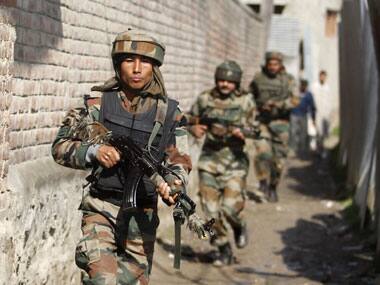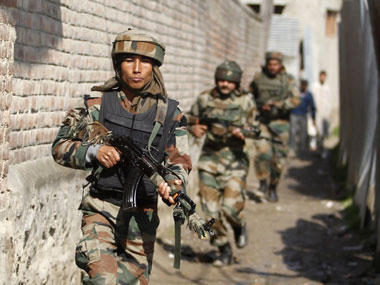By Shailesh Rai Much has changed in India since 16 December 2012, and much has not. The widespread impunity that surrounds crimes against women is under attack like never before. Powerful men in the media and judiciary face allegations of sexual assault and harassment, and political parties now list measures to tackle violence against women in their election manifestoes. But impunity is a hard habit to break, and some institutions remain immune from the wave of public outrage. On top of this list are the armed forces. After last year’s changes to laws on crimes against women, rape by a member of the armed forces is now punishable with life imprisonment. But the catch is that the case needs to make it to court first. And under existing laws, bringing a soldier suspected of sexual assault (or any other human rights violation) to trial is still virtually impossible. The key obstacle is the requirement of prior ‘sanction’, or formal government permission, before a member of the armed forces can be prosecuted. Prior sanction is a colonial-era immunity provision designed originally to protect British civil servants. What it means is that even after the police investigate a complaint and find enough evidence to draw up a chargesheet, the government must give its permission for a trial to begin. [caption id=“attachment_1288597” align=“alignleft” width=“380”]  Why does the army continue to enjoy immunity? Reuters[/caption] This immunity provision is present in Section 197(2) of the Code of Criminal Procedure and in the Armed Forces (Special Powers) Act in force in Jammu and Kashmir and parts of the north-east. Similar sections in the Code of Criminal Procedure and the Prevention of Corruption Act also protect public servants. Prior sanction exists ostensibly to shield soldiers from frivolous litigation around acts done as part of their ‘official duty’. But in practice, it has led to widespread impunity for human rights violations. Sanction for prosecution is sought even for horrific crimes, under the disgraceful pretext that they were committed as part of official duty. Activists in north-eastern India where the Armed Forces (Special Powers) Act is in force say that because of this provision, several cases of rape, sexual assault and torture have not even been prosecuted, let alone punished. One of the most famous cases is that of Thangjam Manorama Devi, who was arrested from her home in Manipur on 11 July 2004 by Assam Rifles personnel and taken for ‘questioning’. A few hours later, her corpse was found a few kilometres away by villagers, bearing bullet wounds on her back and genitals, and signs of rape and other torture. Demonstrations broke out across the state. In an iconic protest, a group of elderly women stripped naked in front of the headquarters of the Assam Rifles, carrying banners that read ‘Indian Army, rape us’ and demanding justice. But to this day, nobody has been tried in the case. The Assam Rifles claim that Manorama was shot while trying to escape from custody, and insist that any prosecution for this act can take place only with the sanction of the central government. The National Commission for Protection of Child Rights has noted that immunity provisions have ‘morphed into an iron shield’ that protects security forces from accountability for serious violations including sexual violence against children. The late Justice Verma, who headed the committee set up after the 16 December Delhi gang-rape to review laws on crimes against women had perceptively noted, “No part of official duty of anyone invested with any public power can be in any way even remotely connected with sexual assault on women; and therefore, the question of Army personnel, paramilitary personnel or any other functionary saying that this could be part of his official duty, well there is something radically wrong with that thinking.” The Justice Verma Committee said that the AFSPA legitimized impunity for sexual violence. Its suggested way out, rightly, was to scrap immunity provisions altogether. The Committee recommended that the Code of Criminal Procedure (CrPC) and the AFSPA be amended to explicitly exclude the requirement for government sanction for certain crimes against women. The government responded, but only partly. It passed an amendment to section 197(1) of the CrPC in April this year which tellingly read: “For the removal of doubts, it is hereby declared that no sanction shall be required in case of a public servant accused of [crimes including rape, sexual assault, sexual harassment, voyeurism and stalking].” But strangely, the government did not seem to feel the need to remove doubts around the sanction provided to the armed forces under the CrPC and the AFSPA. Which means that a policeman or a judge can now be prosecuted for rape without government permission, but for a soldier, the government will have to determine if the alleged offence was part of his ‘official duty’. In cases involving corruption by public servants, the sanction requirement is increasingly being recognized for the smoke screen it is. Last year, the Supreme Court reiterated that the government must respond to a request for sanction under the Prevention of Corruption Act within three months. It also urged Parliament to amend the Act such that if the government did not act in three months, sanction would be presumed to have been granted. The absence of a timeline for sanction, said the Court, “ has often resulted in protecting the guilty and perpetuating criminality and injustice in society”. But this realization has not extended to soldiers suspected of far graver crimes. There is no time-frame for granting prior sanction under the AFSPA. In Jammu and Kashmir, requests for sanctions are kept pending for years on end, while others are mysteriously ‘misplaced’ by the state or central government. RTI applications filed by activist groups like the Jammu and Kashmir Coalition of Civil Society reveal that sanction is virtually never granted under the AFSPA, even for serious human rights violations. Not a single soldier has been prosecuted in a civilian court in the state since the AFSPA was introduced in 1990. (The armed forces say they have court-martialled soldiers, but refuse to divulge any details, making their claims difficult to verify.) In Manipur, the Justice Santosh Hegde Commission, appointed by the Supreme Court to investigate encounter killings in the state, said in its report earlier this year that the AFSPA “ does not provide any protection to the citizens against [its] possible misuse”. The Commission recommended a three-month time limit for granting or refusing sanction, just like in corruption cases. But going by previous military opposition to any perceived dilution of the AFSPA, this recommendation is likely to meet stiff resistance. The requirement of government sanction should have no place in India. Criminal law already contains several safeguards against frivolous cases. A police officer can send a case to a magistrate for cognizance only when there is sufficient evidence. Even at that stage, the magistrate can decide not to take cognizance if he does not think there are grounds for proceeding with the trial. Also, anyone who falsely charges a person with an offence with the intention of causing injury can face imprisonment for up to seven years. Pending bills too are seeking to discard immunity provisions. The Communal Violence Bill removes the sanction requirement for some offences, and imposes a 30-day time limit for decisions on sanction for more serious crimes. The Lokpal Bill passed by the Lok Sabha does away with the need for government permission for prosecution altogether. Impunity for past crimes can encourage new abuses. If the government is serious about tackling violence against women, it needs to do more to show that nobody – regardless of the position they hold– is above the law. The sanction requirement protects state power and obstructs equality and justice. Its time must end soon. Shailesh Rai is a Law and Policy Advisor, Amnesty International India.
While there is no sanction needed to prosecute other government officials for sexual assault cases, the armed forces continue to enjoy immunity.
Advertisement
End of Article
Written by FP Archives
see more


)

)
)
)
)
)
)
)
)



